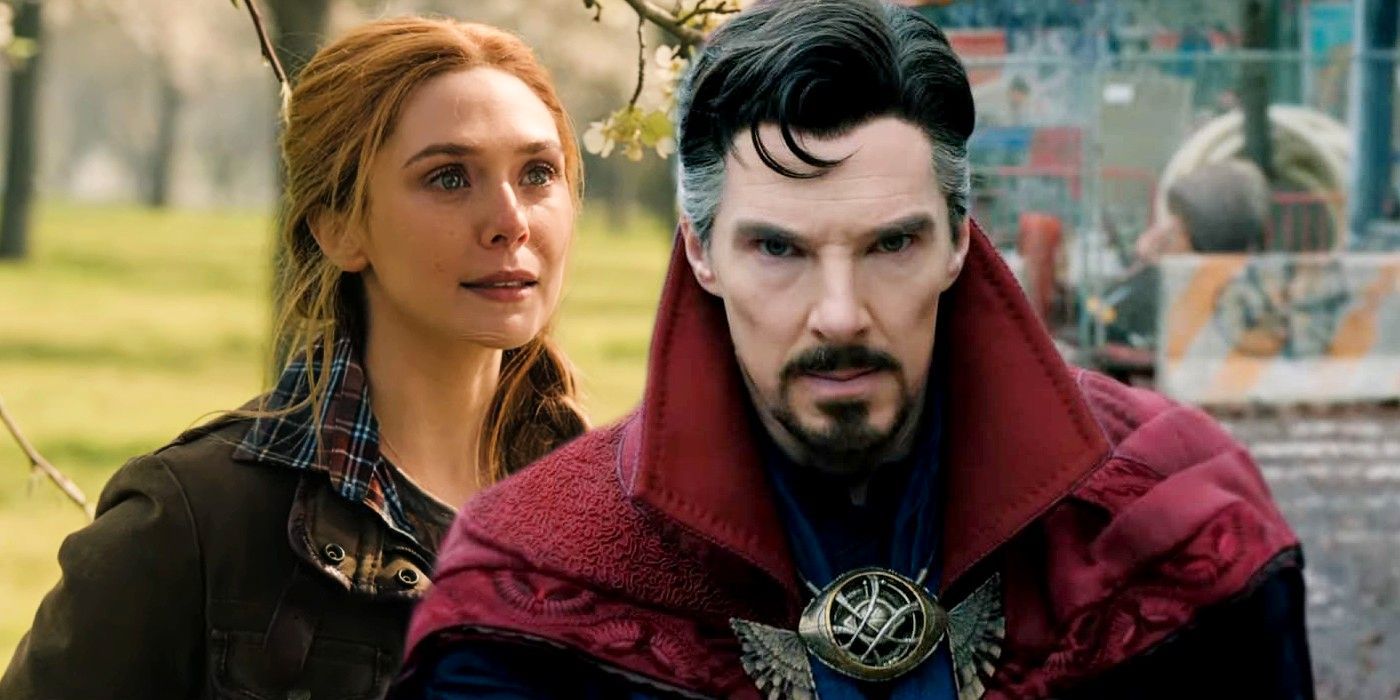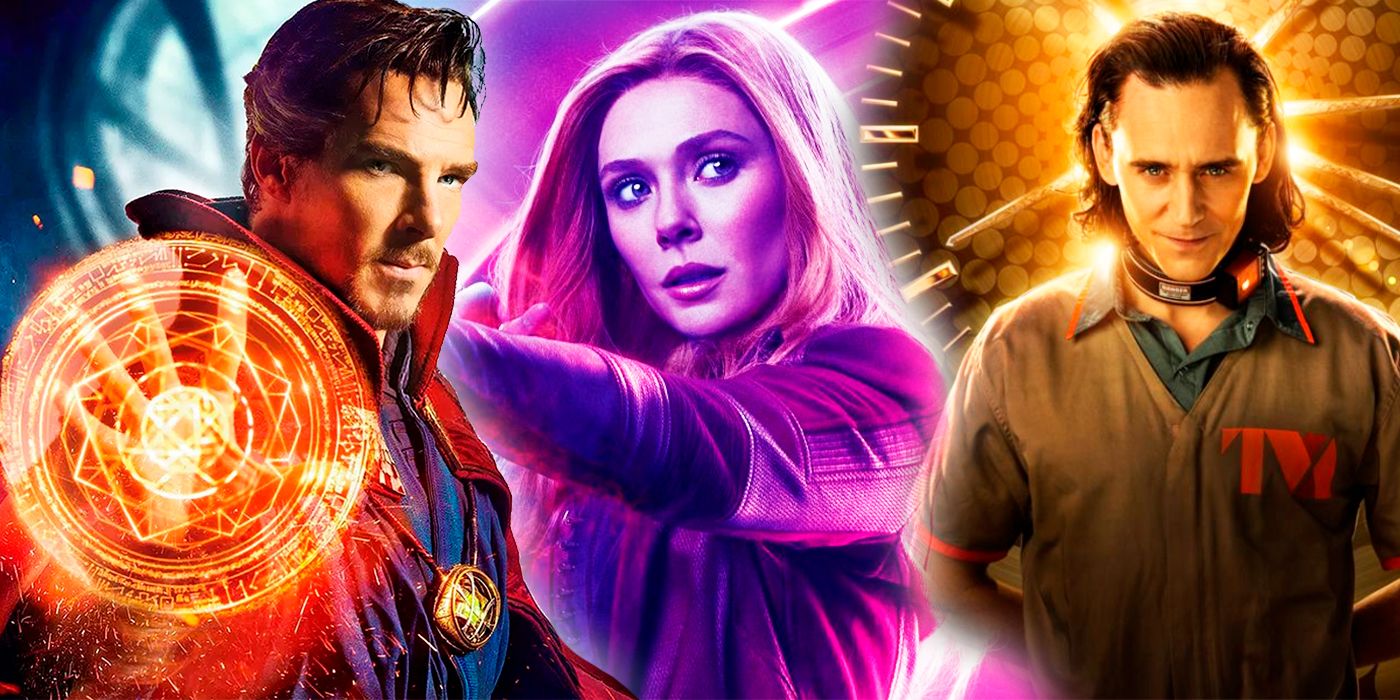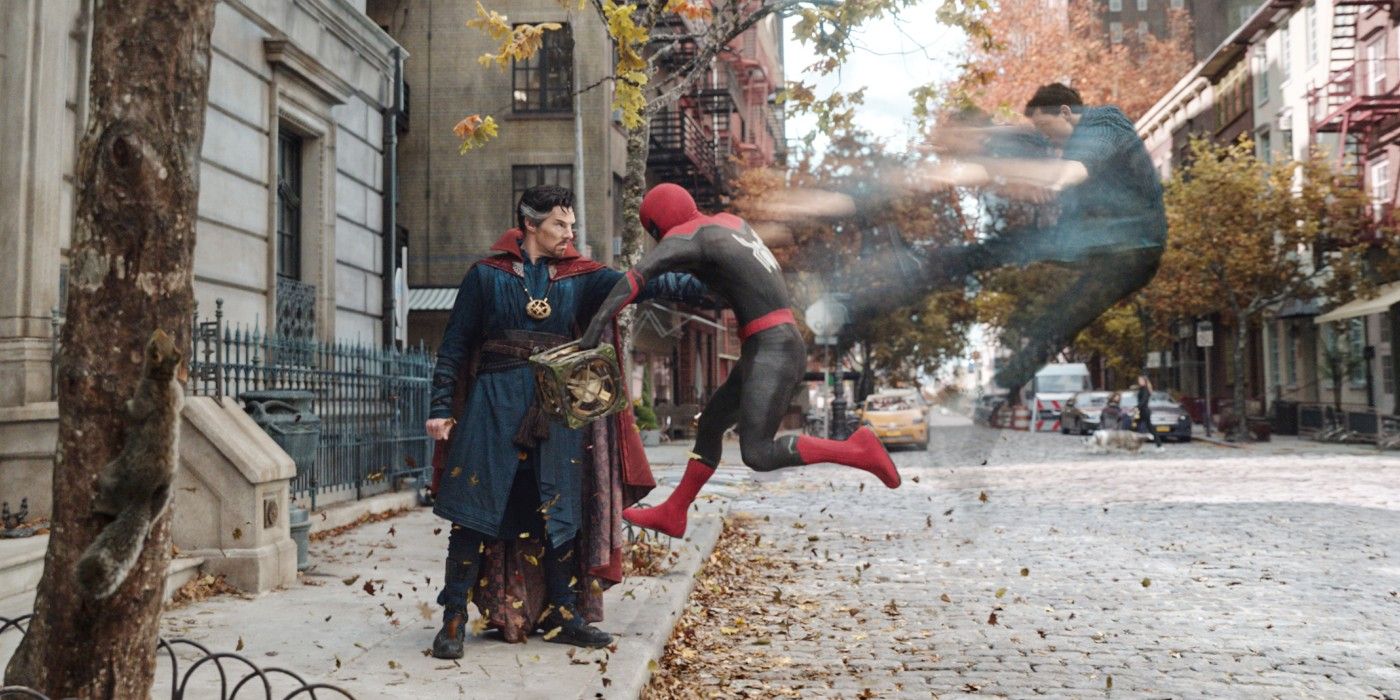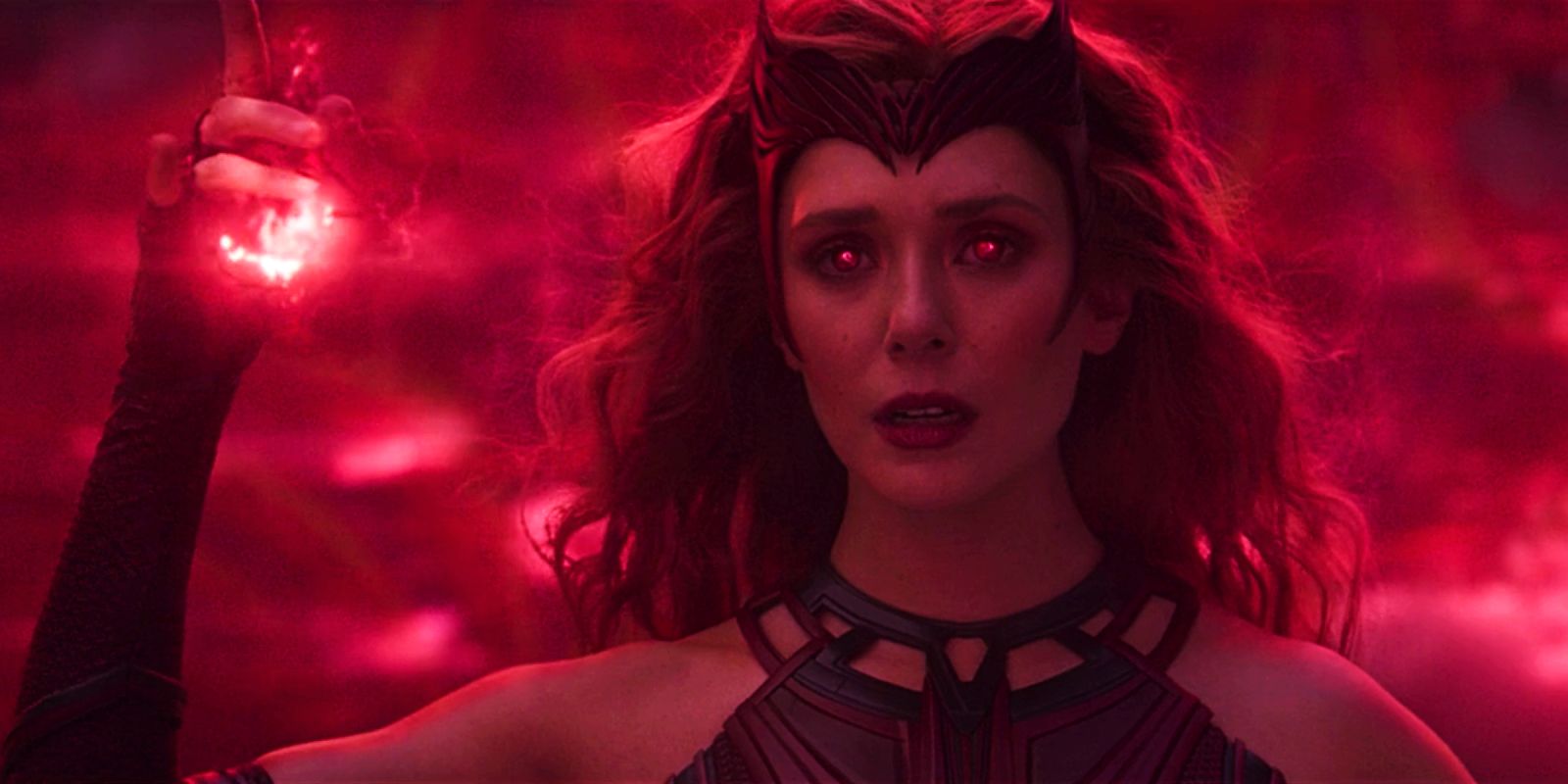As Phase Four of the Marvel Cinematic Universe begins to explore the multiverse, magic and cosmic power, it may not only bring about fascinating new aspects of superheroes but could also begin to lose track of the countless continuities that come with them. With magical beings like Doctor Strange and Scarlet Witch showing off unfathomable powers and abilities, it's not unreasonable to wonder how this level of magic will affect the MCU going forward.
After 2020 became the first year since 2009 where no Marvel projects were released, fans received more content than they could hope for in 2021, with four new movies and five TV shows to boot. This new era for the MCU has distinguished itself by delving into the magical aspects of heroism, considering how WandaVision, Loki and Spider-Man: No Way Home all centered around some form of magic. Now, as Wanda Maximoff explores her true potential, Doctor Strange reveals new spells and Loki exercises his magical abilities across time; the MCU has never contained this much power -- but it may not be for the better.
In fact, one could argue Marvel Studios has put itself in an impossible position as it tries to regain the momentum it had pre-Avengers: Endgame. While Endgame was an incredible product of over ten years worth of world-building and storytelling, that level of buzz and anticipation cannot simply be manufactured without intertwining storylines and taking the time to rebuild the momentum naturally. In this way, the MCU's biggest strength could prove its biggest hindrance as it tries to achieve the same excitement levels present at the end of Phase Three. As a result, it's possible the MCU will try and make up this deficit by increasing the threshold of power the heroes have. Though there have been compelling new characters introduced, Phase Four has already focused on powering up characters who were present in the Infinity Saga.
The characters audiences are familiar with, such as Doctor Strange, the Scarlet Witch and Loki, have no doubt received upgrades, with Wanda discovering her ability to distort reality, Strange digging into the multiverse and Loki -- and other versions of himself -- uncovering power they never believed possible within the Time Variance Authority. This has not only brought the characters into new emotional depths but also introduced caveats into the MCU going forward. As more stories, powers and realities are introduced, the more difficult it will be for Marvel to keep the information contained in a cohesive fashion for audiences.
Likewise, as the standard of power in the MCU continues to climb, it will be a challenge for physically-dominant heroes like Spider-Man, Black Panther and Shang-Chi to contribute to fights that center around magic and cosmic abilities. While Spider-Man gave Doctor Strange a run for his money in their lighthearted match in No Way Home, this incident can't be used as a metric for how physically-bearing heroes fare against the magic types. For one thing, it was clear Strange was holding back against Peter since Peter was not looking to hurt or endanger him. For another, their match involved little fighting; it was more of a chase, so their abilities were not properly tested against each other.
Though the MCU is no stranger to magical abilities and the mystic arts, Phase Four kicks it up a notch with alternate realities, forgetting spells, enchantment and more. Audiences got glimpses into the terrifying capabilities of the Reality Stone in Avengers: Infinity War, but they pale in comparison to the raw power Wanda demonstrated in WandaVision, taking an entire town captive and shaping their reality to her mind's desire. Loki has always used magic and illusions in his schemes; however, his fellow female variant Sylvie demonstrated a greater purpose for their mischief in the form of enchantment by taking a person's memories and temporarily changing their reality. While this particular Loki is outside of the main MCU timeline, the introduction of the TVA's timeline-jumping abilities may allow Loki and Sylvie to enter the main timestream at some point, and there's no telling how this power will impact the multiversal timeline. However, with Doctor Strange and the Multiverse of Madness and Season 2 of Loki on the way, their possible connection will likely be addressed sooner rather than later.
The biggest problem with introducing powerful spells and magic in the MCU may not be how it changes the future but how it affects the past. Specifically, bringing highly potent, useful spells into the mix will inevitably cause eagle-eyed viewers to wonder how that magic could have been used in previous battles and why it wasn't.
For example, Doctor Strange's forgetting spell in No Way Home certainly could have come in handy prior; Strange clearly knew how to execute the spell, and it was only after Peter's meddling where the spell went array. This is a spell that could have resolved the Infinity Saga's central conflict in an instant -- Strange had several direct encounters with Thanos where he could have erased his memory of the Infinity Stones and his quest to find them. Even further, he could have cast a wider net where no one at all would remember the Infinity Stones' existence. While it's unclear if the reaches of the spell would affect beings outside of Earth, the dire circumstances would surely warrant an attempt. It's also possible Strange had not learned the spell at the point of Infinity War and Endgame, as No Way Home takes place eight months after the events of Endgame. However, he said it was a simple spell, and given how hard he was working to become the Sorcerer Supreme at the time, it seems unlikely he wouldn't have mastered it or at least known of it.
Even though powerful sorcery and cosmic abilities add an exciting new dimension and certainly higher stakes to the MCU, there can be a point where the boundaries of such powers become convoluted. If one compares the original six Avengers with the current heavy-hitters, the potential power structure of the new Avengers rises far higher than their predecessors. With a reality-bending witch, a master sorcerer and access to the multiverse, it's not hard to see why. But with the simplicity of Captain America's punches, Iron Man's machinery and Thor's godlike strength came a sense of directness for the audience in years past.
Now, with a whopping 27 films and five TV shows, the MCU may be at a point where intimate knowledge of its continuity and characters is a necessity. For die-hard MCU fans, this is a definite positive. For the average comic book movie enjoyer, it can be daunting. Therefore, there comes a challenge for Marvel Studios going forward: keep the MCU digestible for the typical movie-goer while building the increasingly-complex web of characters and stories for super fans to explore every detail of. It's a difficult task, but Marvel Studios has never been known to back down from a challenge.




